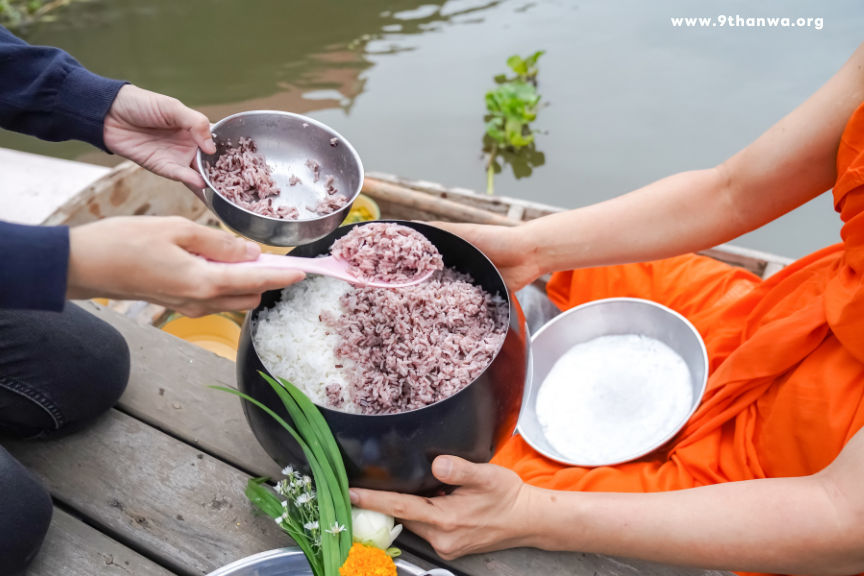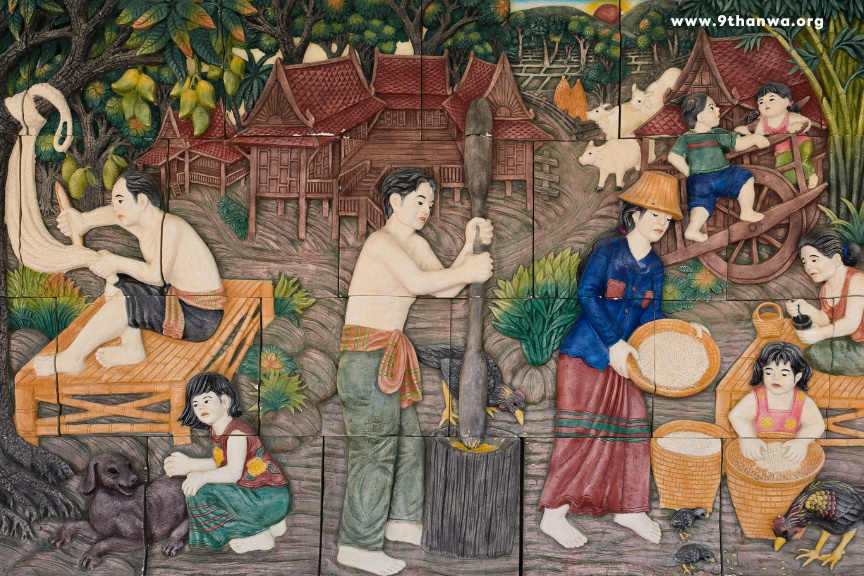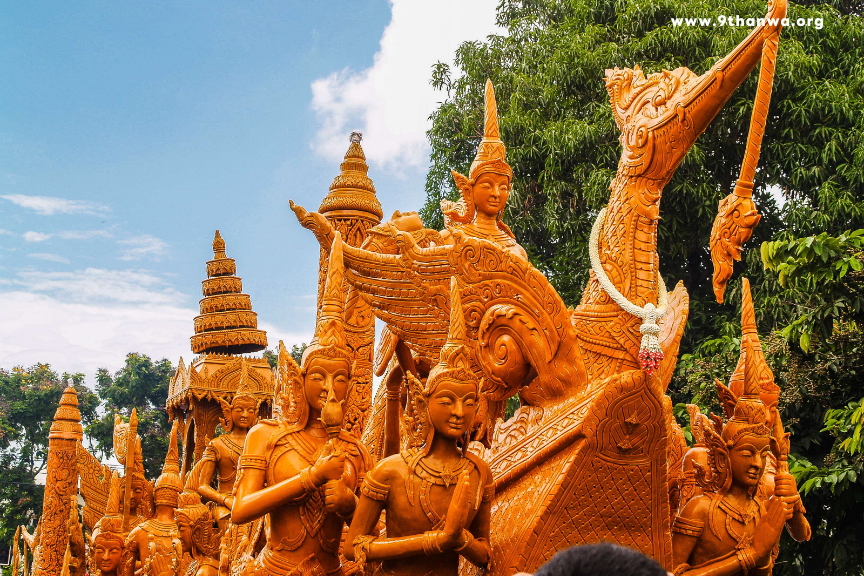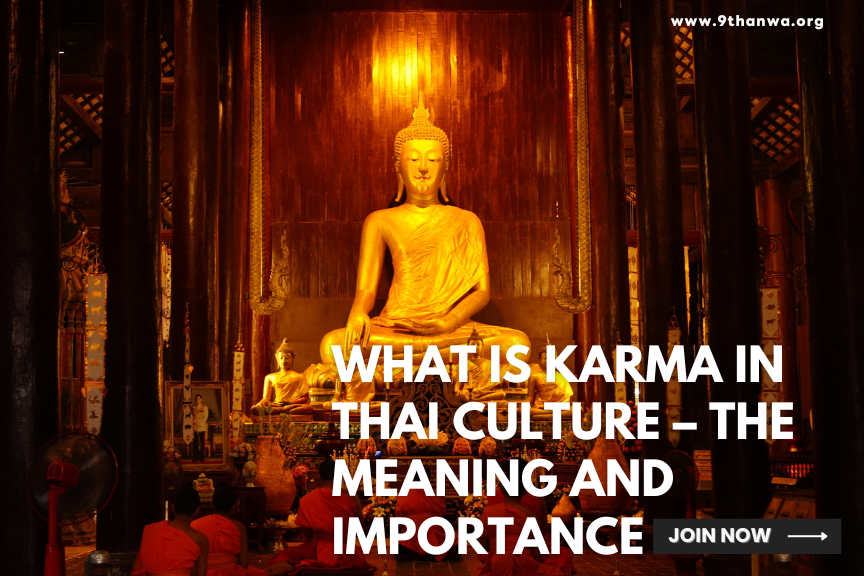⚖️ What is Karma in Thai Culture? – Explained Simply
Karma is a concept that transcends many cultures, but in Thai culture, it plays a significant role in understanding the actions and consequences of life. Rooted in Buddhist philosophy, karma helps explain why things happen the way they do, and why our actions—whether good or bad—are important in shaping our lives and future.
🌱 1. What is Karma?
At its core, karma means “action” or “deed” in Sanskrit and Pali. In Thai culture, karma is the belief that every action has a consequence, whether it’s positive or negative. It’s often explained as the moral law of cause and effect, where:
-
Good actions lead to good outcomes
-
Bad actions lead to suffering or misfortune
Karma isn’t just about actions — it’s also about intentions. Your intentions behind each action influence the result of that action in your present life or in future lives.

🔥 2. How Karma Works in Thai Culture
In Thai culture, karma is deeply intertwined with Buddhist teachings. According to Buddhist philosophy, karma is not a punishment or reward administered by a deity. Instead, it’s a natural law that operates on its own, much like the law of gravity.
The key elements of karma in Thai culture are:
-
Intentions Matter: It’s not just what you do, but how you feel about what you’re doing. The intention behind your actions determines the karma they create.
-
Rebirth and Past Lives: Karma affects not only your current life but also your future lives. Positive karma may lead to a better life in the next reincarnation, while negative karma can result in suffering.
-
Karma is Universal: Everyone is subject to karma, regardless of age, gender, or social status. No one can escape the consequences of their actions.
🌟 3. Good vs. Bad Karma
Karma can be divided into two categories — good and bad.
Good Karma:
-
Positive actions driven by compassion, kindness, and generosity.
-
Helping others, such as feeding the poor, providing shelter, or offering aid in times of need.
-
Spiritual practices such as meditation and chanting that contribute to mental peace and enlightenment.
Good karma is believed to lead to peaceful and prosperous lives, and is often associated with happiness, health, and successful relationships.
Bad Karma:
-
Negative actions caused by greed, hatred, or ignorance.
-
Hurting others, whether physically or emotionally, for selfish gain or revenge.
-
Dishonesty, cheating, or engaging in harmful behaviors.
Bad karma is believed to bring about misfortune, suffering, and obstacles in life. People who accumulate bad karma may face struggles, whether in their current life or in the next.

🧘 4. How to Improve Your Karma in Thai Culture
The good news is that karma is not fixed — it can be improved through conscious actions, intentions, and practices. In Thai culture, there are several ways to accumulate good karma:
-
Practice kindness: Perform acts of kindness without expecting anything in return. Helping others selflessly creates positive energy and good karma.
-
Meditate and reflect: Meditation is a powerful tool in Buddhism for purifying the mind and cultivating positive intentions. By practicing mindfulness, you can reduce negative thoughts and actions.
-
Engage in good deeds: Simple acts such as giving to charity, volunteering, or caring for animals can help you accumulate good karma.
-
Offer gratitude and respect: Showing respect for others, especially elders and spiritual figures, fosters good karma and strengthens social bonds.
🌿 5. Karma and Spiritual Practices in Thailand
Karma is not just a belief but is deeply embedded in the daily lives of many Thais. Spiritual practices and rituals are seen as a way to balance karma and enhance positive energy.
-
Offering food to monks: Thais believe that offering food to monks is one of the most beneficial acts to create good karma. It is an act of giving and gratitude that helps both the giver and the receiver.
-
Donating to charity: Regularly giving to temples, schools, or those in need is another way Thais accumulate good karma.
-
Blessings and prayers: Thai people often visit temples to seek blessings for health, wealth, and protection. These rituals are believed to help purify karma and attract positive energy.
💡 6. Final Thoughts: Karma as a Guide for Life
In Thai culture, karma is not just a concept but a way of life. It serves as a reminder that every action has consequences, and that the intentions behind those actions are just as important. By practicing mindfulness, kindness, and self-awareness, we can accumulate good karma and live more meaningful, peaceful lives.
Embrace the idea that karma is always within your control, and through mindful actions, you can shape your own destiny — and the future of those around you.

